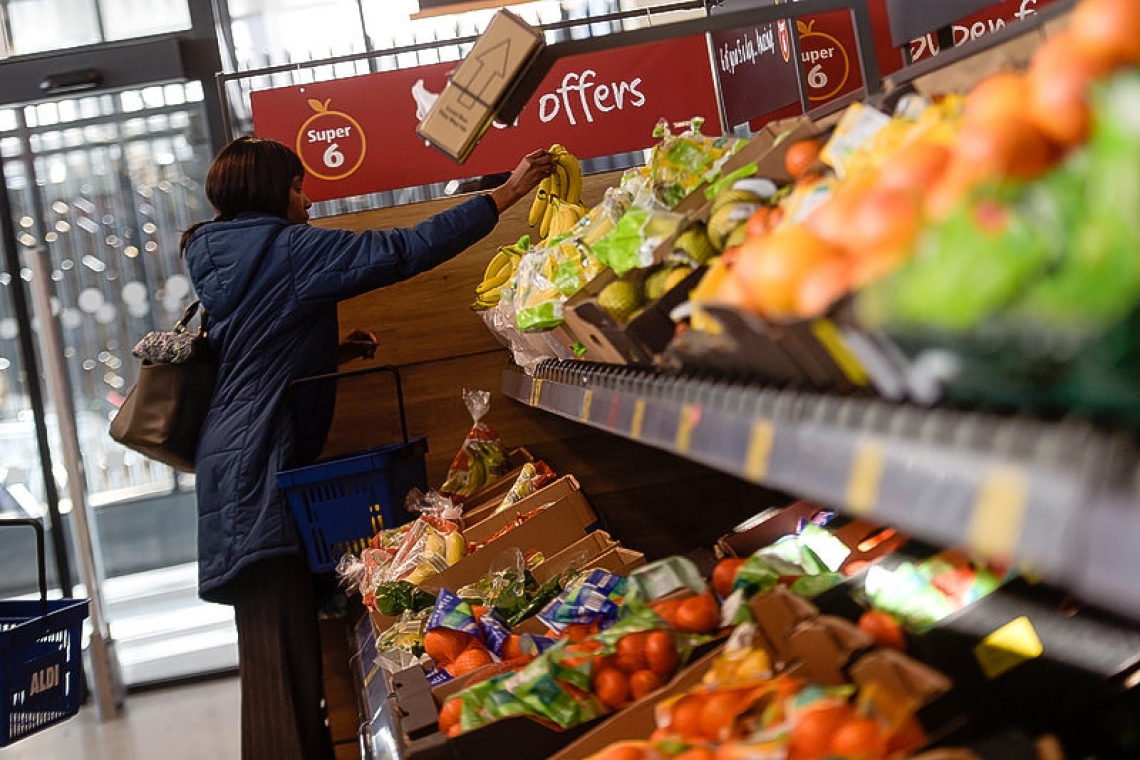ROME--Mobile phone apps that point shoppers to discounted groceries, codes on chicken and cheese that display their origin, and water dispensers and degradable packaging that slash plastic use. These are just some of the steps European supermarkets are taking to attract customers increasingly concerned about the environmental cost of farming, food waste and everyday products.
"We are witnessing a bit of a seismic change in attitudes in consumers who are purchasing food," said Julian Burnett, vice president for the distribution sector at IBM UK & Ireland.
"There's more awareness than ever before about the provenance of food and sustainable practices," he added.
Tech giant IBM recently conducted an online survey of 6,000 consumers in Britain, Spain and Italy, which showed a majority in the two southern European countries would be willing to pay more and shop at places that support a greener food system. The exercise was prompted by the growing demand faced by IBM's retail clients to produce food sustainably - concerns that are likely to increase in the future, said Burnett.
"We have the same feeling," said Fausto Iori, CEO of NaturaSi, an Italian organic supermarket chain with about 500 stores countrywide, noting customers have responded positively to the company's efforts to cut waste.
Three months ago, NaturaSi started putting products nearing their expiry date on Too Good To Go, an app available in 15 countries. "We sold 10,000 boxes (equivalent to 10 tonnes) of food through the app," he said.
NaturaSi was also the first Italian supermarket to install water dispensers - blue, vending machine-like boxes with a touch screen - to shift customers away from plastic bottles, he said. Italians consume 206 litres of bottled water per year, the second highest in the world after Mexico, according to Italian environmental non-profit Legambiente. But NaturaSi's customers are keen to kick the habit, Iori told the Thomson Reuters Foundation.
French retailing giant Carrefour SA, meanwhile, is deploying blockchain technology to compile detailed information on 24 products, including chicken, cheese, milk and oranges, in five countries, said project manager Emmanuel Delerm. Customers can scan a QR code on a packet of chicken with their phones and find out when the bird was born, who the farmer is, if it was raised using antibiotics, when it was slaughtered and processed, and when it arrived at the store, he said.
"In all the countries where we are operating, there is an interest in transparency and traceability - not only the provenance but the conditions in which the products have been produced and harvested," Delerm explained.
The company, which worked on its blockchain platform with IBM, said sales of those products had increased.
In neighbouring Spain, popular supermarket chain Mercadona is teaming up with an incubator to find and fund start-ups to help it eliminate plastics, reduce waste and save energy.
Daniel Vennard, director of the London-based Better Buying Lab, which encourages more sustainable eating, said retailers were no longer competing only on price, quality and convenience. "That's still very important but now I think (they) are increasingly looking to differentiate their offer and almost think of themselves as lifestyle brands, embodying the values of the consumers they want to attract," he said.
He pointed to a 2018 Christmas advert from British frozen-food chain Iceland about an orangutan whose habitat was destroyed by deforestation linked to palm oil production. It triggered a public conversation about the issue, after it was banned by regulators, enabling the firm to reposition itself as more than a place for affordable food, Vennard said.







